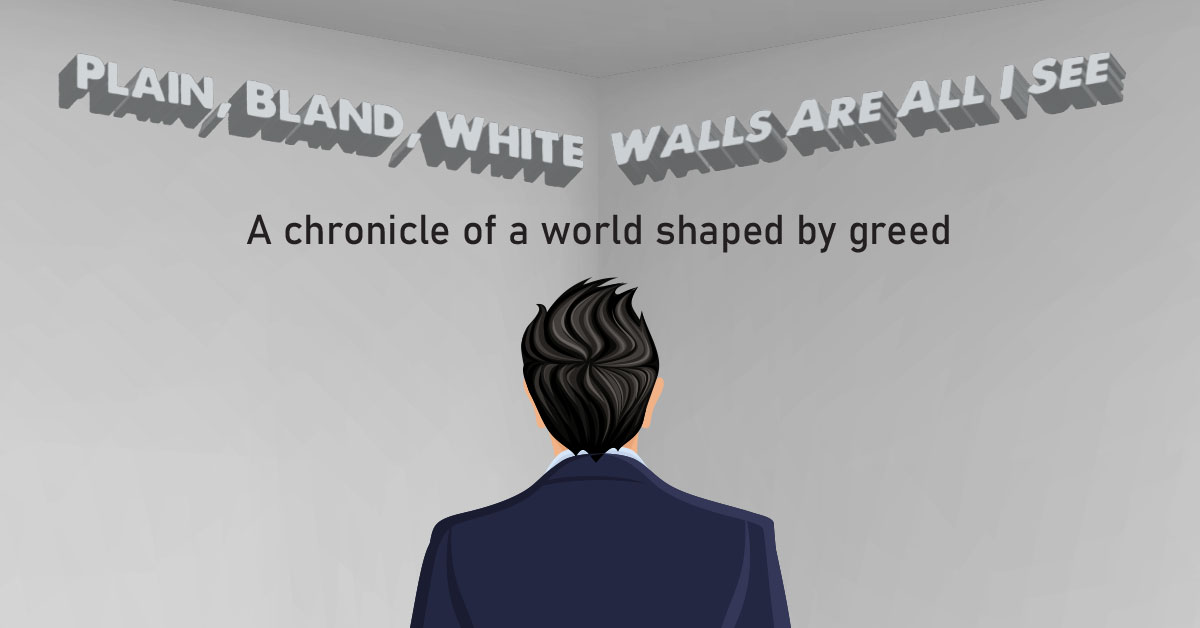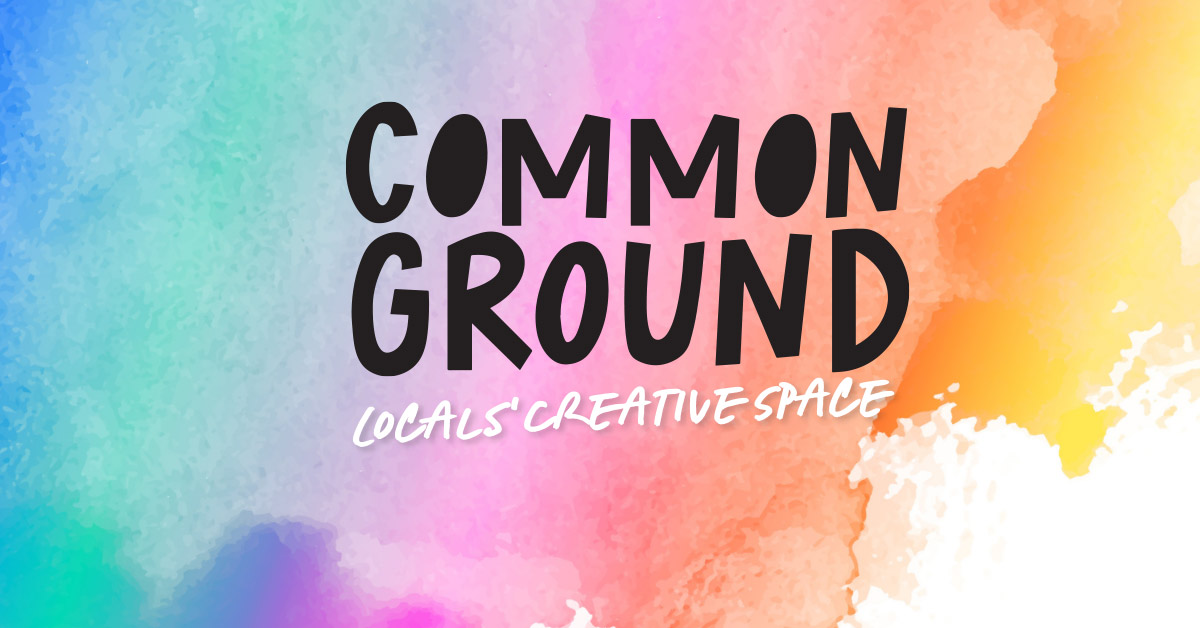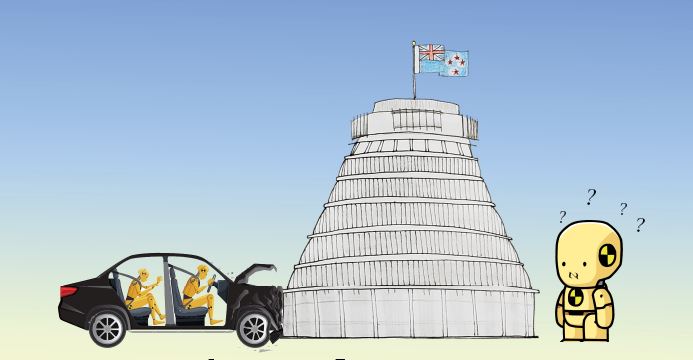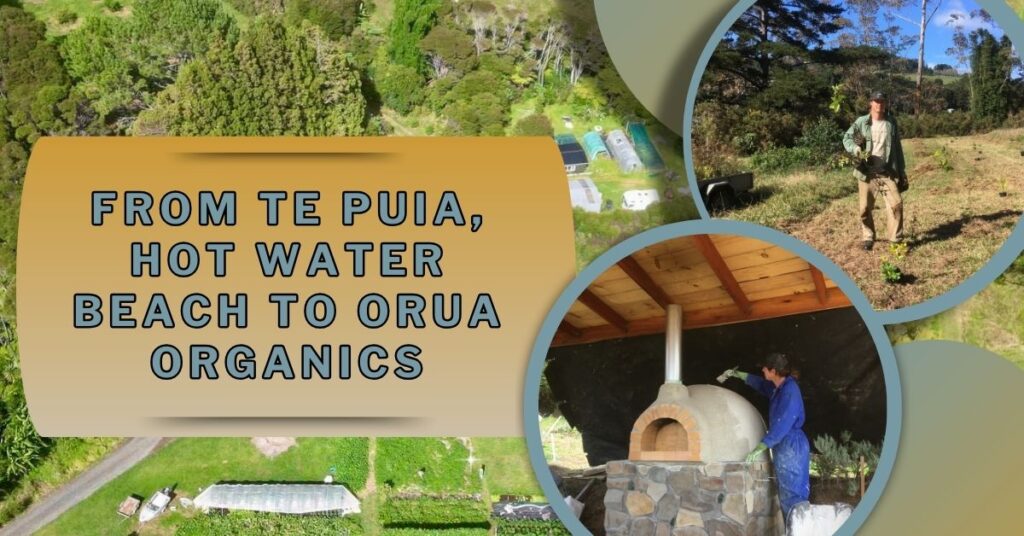
Shaped by permaculture, grounded in whānau values
I clearly remember the purpose that brought me to Hot Water Beach sixty years ago – looking for a site for a family beach home with room for gardening. I was 15 years old. My parents came down and bought a beachfront section and a DIY beach home project was created. Eventually my brother and whānau became permanent residents there. Eight years ago, they shifted away from the hurly burly of beachfront living to the relative peace and quiet of 37 hectares at the back of Hot Water Beach valley.
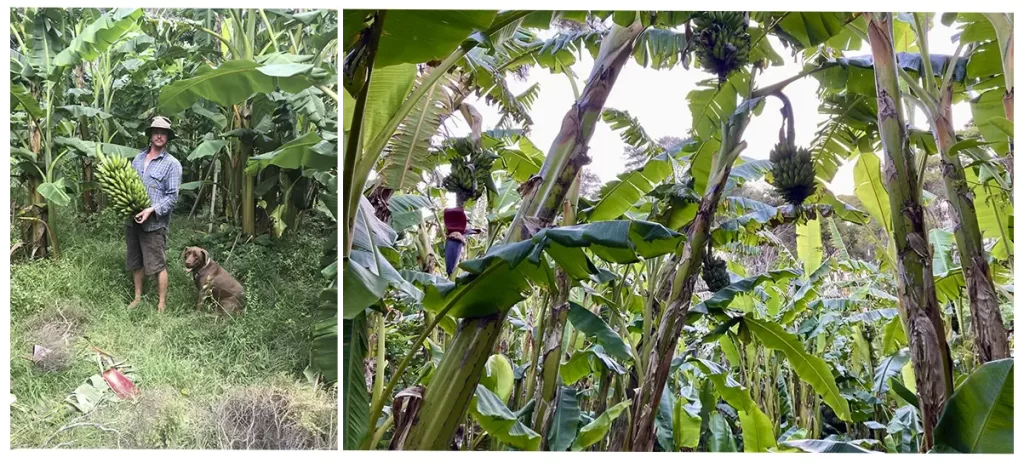
Their new property contained pockets of ancient Whenuakite coastal forest, logged over regenerating bush and wilding pines. The old pasture areas had turned to grandfather gorse and the stream edge was thick with woolly nightshade (tobacco weed), privet and blackberry. There were no intact buildings. Infrastructure was needed urgently and a tractor with enough grunt to drive a heavy-duty mulch mower. For gardening, the flats had real potential.
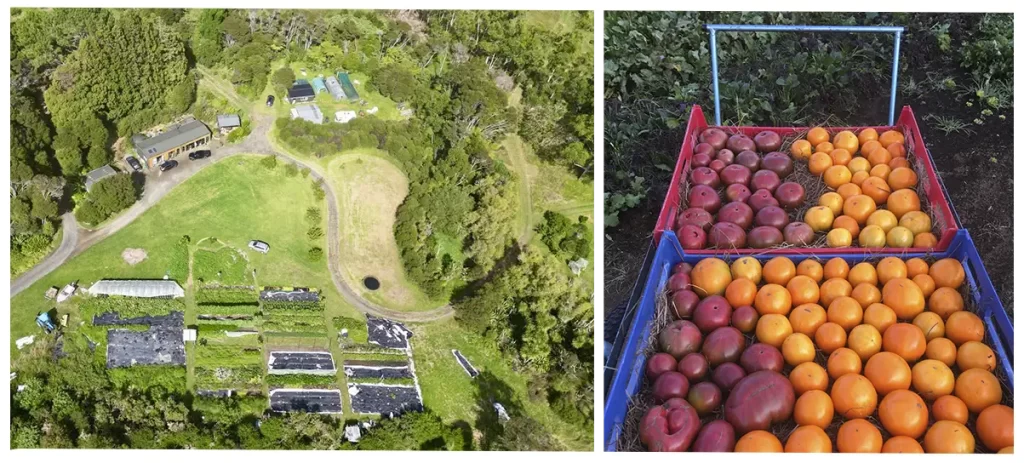
Nearby remnants of old fruit trees showed what could be grown. Beautiful peaches once grew there, and wild kiwi fruit still did. The bush backdrop provided some shelter as did a row of Japanese cedar and clumps of bamboo. To celebrate the land purchase, an apple tree was planted near an existing large sapote, and Orua Organics was born.
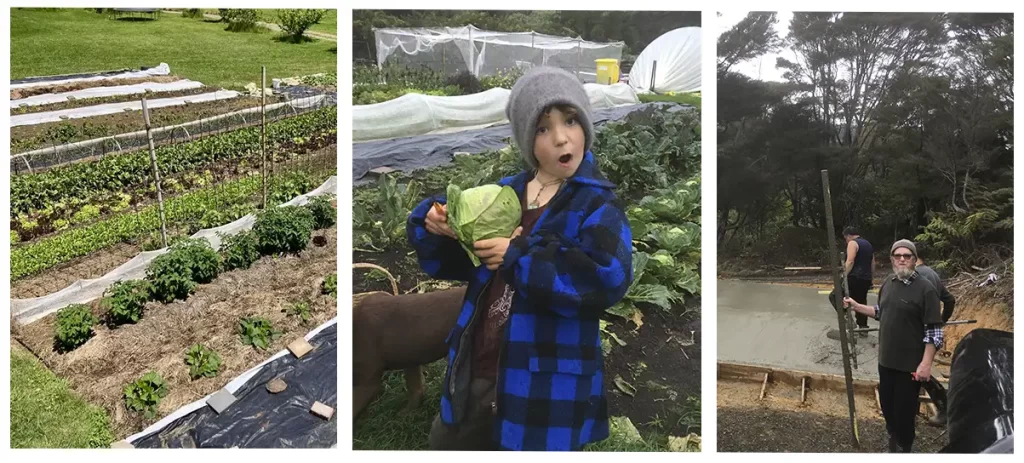
Hazel and Jacob Sims run the project along with their three tamariki. Their dream is to produce nutrient-dense fruit and vegetables for the local community, while repairing biodiversity and protecting the whenua (land). They are utilising the principles of permaculture supported by a desire to be on the whenua for a lifestyle that is sustainable and nurturing to the environment.
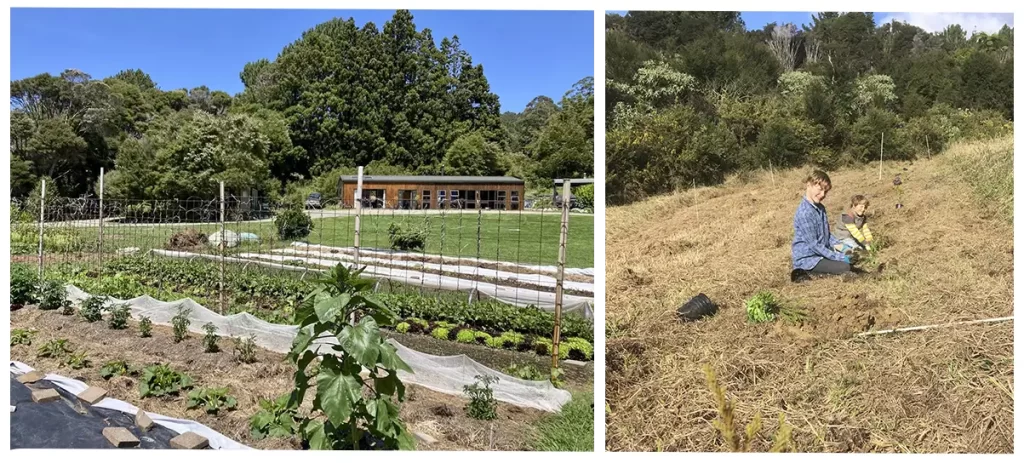
To begin the infrastructure, a level site was cut for a pole shed. What started as an open bay implement shed was gradually upgraded to a staff room facility by installing a concrete floor, closing in the front, attaching a utilities building and a septic tank system. The concrete work was directed and supported by Ngāti Hei kaumātua, Joe Davis. He got stuck in and led the concrete pours and trained us up as he went. His expertise and ‘hands on’ help left a lasting impression on our whānau. The entire property is off the power grid so ideally everything has to be solar powered, including the solid wood homestead, built in 2021.
With time, mixed species shelterbelts were created, orchards contoured for maximum water retention, hothouses built, shade houses and garden beds. Considerable pest control, wilding pine removal, gorse mulching, privet and woolly nightshade cut and pasted. Some areas are still mulch mowed when gorse regrows and the soil is improving, with the green material naturally ‘sheet composted’ back in.
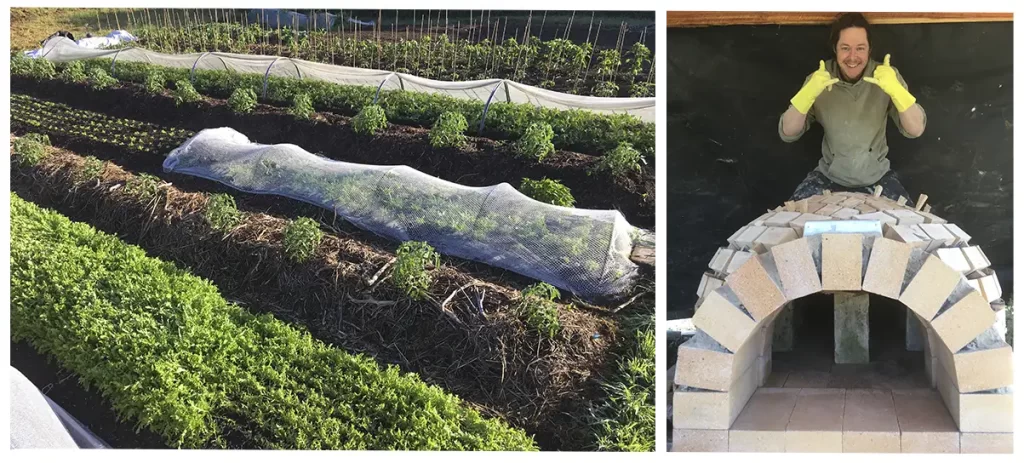
The gardens are a testament to Jake’s growing skills, with carefully set-out beds of seasonal vegetables, some covered with cloche, others in the hot house. Seedling plants are propagated onsite. Fresh locally grown produce goes into weekly veggie boxes. It hits the spot for ‘foodie’ locals and visitors. As the orchards mature and the veggie gardens respond to being nurtured with compost and ‘no dig’ approach, the resulting produce gets more nutritious by the day.
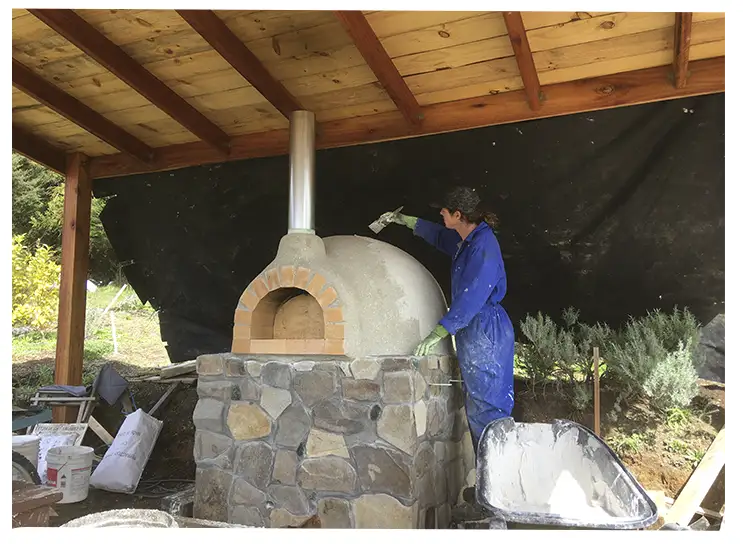
The mauri (life force) of the ngahere (forest) and whenua (land) has definitely been enhanced. As the fledgling ‘food forest’ mingles with the existing ngahere, large fruiting banana palms, tropical trees, seem at home amongst kahikatea, tōtara and kānuka. The atmosphere as you enter this forest is almost mystical, cooling and calming. I think of the old stories of this being a place of patupaiarehe, fairy-like creatures of the forest and mountain tops. I imagine they would love fruit, clear stream water and shady hiding places.
The dual history reveals itself. Māori shadows still lie on the whenua, the ridge smothered in kūmarahou (golden tainui), a suggestion that Māori travellers passed here and spread seed of this valued rongoā mauri. Now pākehā also make their mark, māra kai (gardens), whare and a genuine wish to leave the land better for future generations. It all adds to the positive vibe from Orua Organics, a continuing story of resilience, hard mahi and having a dream.
Words by Howard Saunders
Coromind: Coromandel’s Collaborative Magazine

Help us take Coromind Magazine to new heights by becoming a member. Click here
Change the Weather for Your Business: Advertise with Us.
Advertise your business in the whole Hauraki Coromandel in the coolest Coromandel Art Magazine, from Waihi Beach/Paeroa /Thames up to the Great Barrier Island.
Advertise Smarter, Not Harder: Get in Touch



